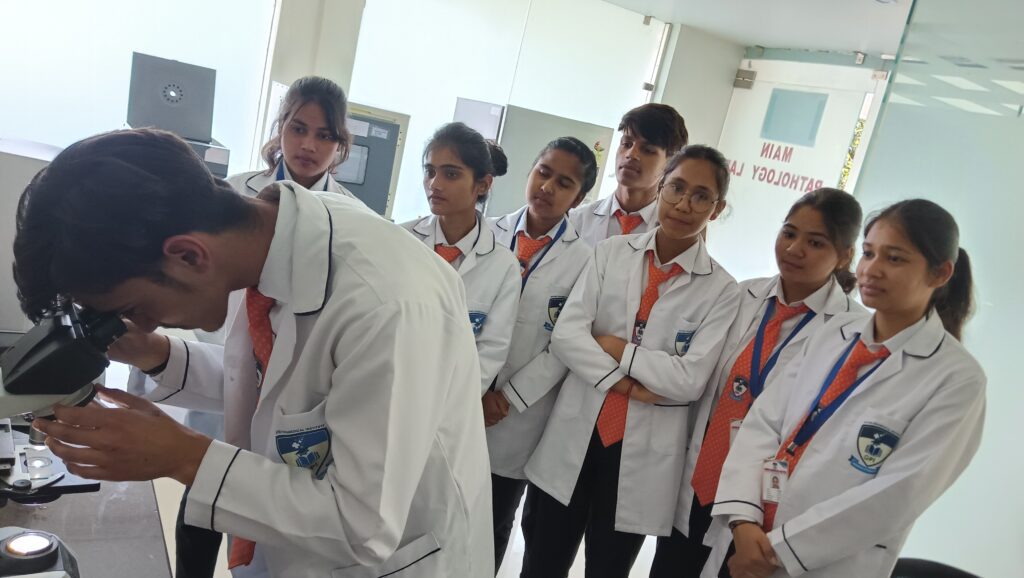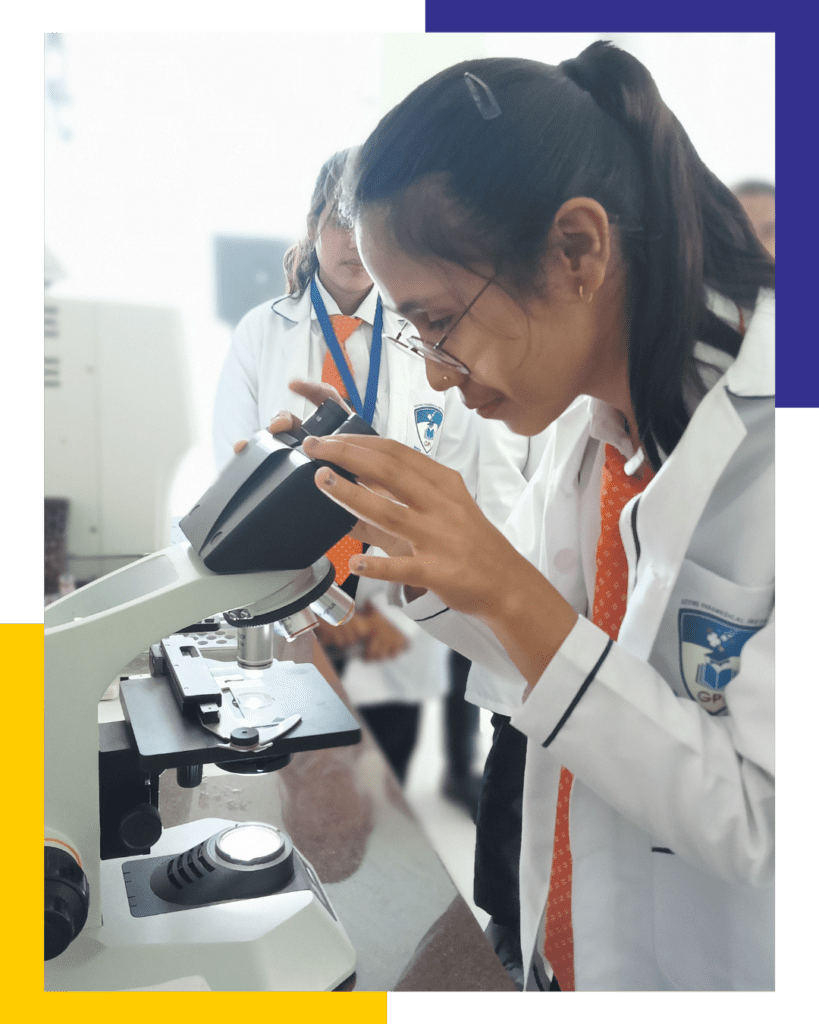OPportunities

Bachelor's in Medical Laboratory Technology
BMLT professionals play a critical role in the healthcare system, working behind the scenes to perform various laboratory tests and analyses that aid in the diagnosis, treatment, and prevention of diseases. Let’s explore the diverse career opportunities that await you in the field of BMLT.
Clinical Laboratory Technologist: As a clinical laboratory technologist, you’ll work in a clinical laboratory setting, performing a wide range of laboratory tests on patient samples. You’ll handle equipment, analyze specimens, and generate accurate and reliable test results. Your expertise in areas such as hematology, microbiology, clinical chemistry, and immunology will be essential in assisting physicians in making accurate diagnoses and monitoring patient health.
Laboratory Quality Manager: Quality control and assurance are crucial in laboratory settings to ensure accurate and reliable test results. As a laboratory quality manager, you’ll oversee the implementation of quality control processes, develop and maintain quality assurance programs, and ensure compliance with regulatory standards. Your attention to detail and knowledge of quality control practices will be vital in maintaining the highest standards of laboratory testing.
Blood Bank Technologist: In this role, you’ll work in a blood bank or transfusion center, performing blood typing, cross-matching, and screening for transfusion-transmissible infections. You’ll ensure the safety and compatibility of blood products before they are administered to patients. Your knowledge of blood banking procedures, immunohematology, and transfusion medicine will be crucial in providing safe and effective blood transfusion services.
Molecular Diagnostics Technologist: With advancements in technology, molecular diagnostics has become a rapidly growing field in laboratory medicine. As a molecular diagnostics technologist, you’ll perform tests that involve the detection and analysis of genetic material, such as DNA and RNA. You’ll work with cutting-edge techniques, including polymerase chain reaction (PCR), gene sequencing, and genetic profiling, to aid in the diagnosis of genetic disorders, infectious diseases, and cancer.
Research Scientist: BMLT graduates can pursue careers in research, working in research institutions, pharmaceutical companies, or academic settings. In this role, you’ll contribute to scientific advancements, develop new laboratory techniques, conduct experiments, and analyze data. Your research findings may contribute to the development of new diagnostic tests, treatments, and therapies.
Laboratory Information Systems Manager: In today’s digital age, the efficient management of laboratory information systems is essential. As a laboratory information systems manager, you’ll oversee the implementation and maintenance of laboratory information systems, ensuring seamless data flow and accurate reporting of test results. Your knowledge of laboratory information systems and data management will be crucial in streamlining laboratory operations.
Education and Training: BMLT graduates can also pursue careers in education and training. By becoming instructors, lecturers, or faculty members in educational institutions, you can impart your knowledge and expertise to aspiring laboratory technologists. You’ll play a vital role in shaping the next generation of laboratory professionals and ensuring a skilled workforce for the future.
Career in bmrit
A career in BMLT offers a wide range of opportunities to contribute to patient care, scientific research, and public health. Whether you choose to work in hospitals, research institutions, blood banks, or diagnostic laboratories, your skills as a BMLT professional will be highly valued. Embrace the exciting possibilities that await you in this ever-evolving field.


